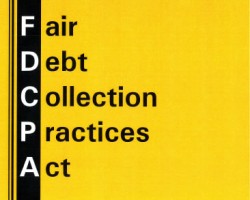
Garfield v. Ocwen Loan Servicing, LLC (2d Cir. 2016)
View original: From the court | Our backup
… $938 per month to prevent foreclosure of the 2 mortgaged property.2 … 7 demanded that she pay $21,825.15 or face foreclosure on her 8 home. Ocwen sent a delinquency notice… failure to make required payments risks foreclosure. … payments, which she agreed to make to 19 avoid foreclosure. Subsection 1692g(a)(3) requires notice of 20…
______________________________
FDCPA Not Repealed by Bankruptcy Code
NCBRC – January 4, 2016
In good news to start off the New Year, the Second Circuit has found that the Bankruptcy Code does not preclude application of the FDCPA to a claim involving a debt discharged in bankruptcy. Garfield v. Ocwen Loan Servicing, No. 15-527 (2d Cir. Jan. 4, 2016). Ms. Garfield filed suit in district court against Ocwen Loan Servicing based on Ocwen’s collection conduct with respect to a debt that had been discharged in bankruptcy. Specifically, Ms. Garfield complained that Ocwen failed to comply with certain FDCPA notice requirements and used false and misleading representations or means to collect a debt. The district court dismissed the complaint on the basis that the claims were precluded by the Bankruptcy Code in general, and that even if the Code does not wholly preclude application of the FDCPA, the specific claims in the complaint were in conflict with the discharge injunction.
The Second Circuit reversed.
The court began with the principle that when a later-enacted federal statute (Bankruptcy Code) does not explicitly repeal an earlier federal statute (FDCPA), as is the case here, implied repeal is limited to instances of irreconcilable conflict. The court turned to its own precedent as well as analysis of cases out of other circuits to determine whether the FDCPA is precluded by the Code. In Simmons v. Roundup Funding, LLC, 622 F.3d 93 (2d Cir. 2010), the Second Circuit found that a debtor could not bring suit under the FDCPA for misconduct related to proofs of claim while her bankruptcy was pending. There, the debtor filed a class action suit based on the creditor’s purported practice of filing inflated proofs of claim in bankruptcy. Without explicitly relying on preclusion, the court reasoned that “[t]here is no need to protect debtors who are already under the protection of the bankruptcy court,” and found that while a bankruptcy proceeding is still open the debtors were limited to bankruptcy remedies. The Simmons court was not faced with the applicability of the FDCPA post-discharge.
In contrast, the Seventh Circuit, in Randolph v. IMBS, Inc., 368 F.3d 726, 728 (7th Cir. 2004), found that the debtors could bring a suit against creditors under the FDCPA for conduct that violated the automatic stay. In so holding, Judge Easterbrook charted the workings of the two statutes and concluded that while they overlapped in many respects, they were not in conflict because a debt collector could comply with both simultaneously and both could be enforced. (See also Simon v. FIA Card Services, N.A., 732 F.3d 259, 274 (3d Cir. 2013), finding that the Code does not impliedly repeal the FDCPA.)
[NCBRC]


